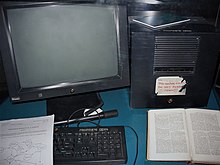INTERNET
Internet is the global system of interconnected computer networks that use the Internet protocol suite (TCP/IP) to link devices worldwide.
It is a network of networks that consists of private, public, academic, business, and government networks of local to global scope, linked by a broad array of electronic, wireless, and optical networking technologies.
The Internet carries an unlimited range of information resources and services, such as the inter-linked hypertext documents and applications of the World Wide Web (WWW), electronic mail, telephony, and file sharing.
World Wide Web
Many people use the terms Internet and World Wide Web, or just the Web, interchangeably, but the two terms are not synonymous.
The World Wide Web is the primary application program that billions of people use on the Internet, and it has changed their lives immeasurably.However, the Internet provides many other services.
The Web is a global set of documents, images and other resources, logically interrelated by hyperlinks and referenced with Uniform Resource Identifiers (URIs). URIs symbolically identify services, servers, and other databases, and the documents and resources that they can provide.
Hypertext Transfer Protocol (HTTP) is the main access protocol of the World Wide Web.
Web services also use HTTP to allow software systems to communicate in order to share and exchange business logic and data.
World Wide Web browser software, such as Microsoft's Internet Explorer/Edge, Mozilla Firefox, Opera, Apple's Safari, and Google Chrome, lets users navigate from one web page to another via hyperlinks embedded in the documents.
These documents may also contain any combination of computer data, including graphics, sounds, text, video, multimedia and interactive content that runs while the user is interacting with the page.
Client-side software can include animations, games, office applications and scientific demonstrations. Through keyword-driven Internet research using search engines like Yahoo!, Bing and Google, users worldwide have easy, instant access to a vast and diverse amount of online information.
Compared to printed media, books, encyclopedias and traditional libraries, the World Wide Web has enabled the decentralization of information on a large scale.

No comments:
Post a Comment